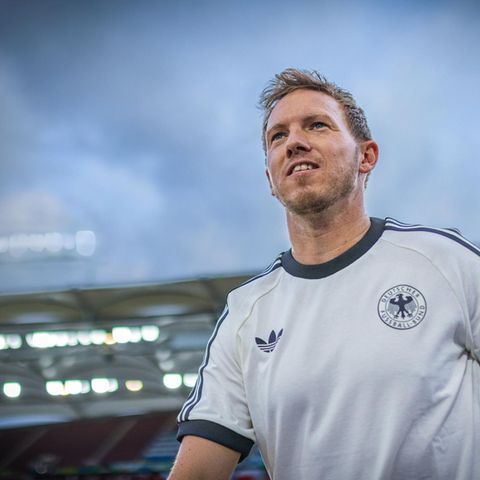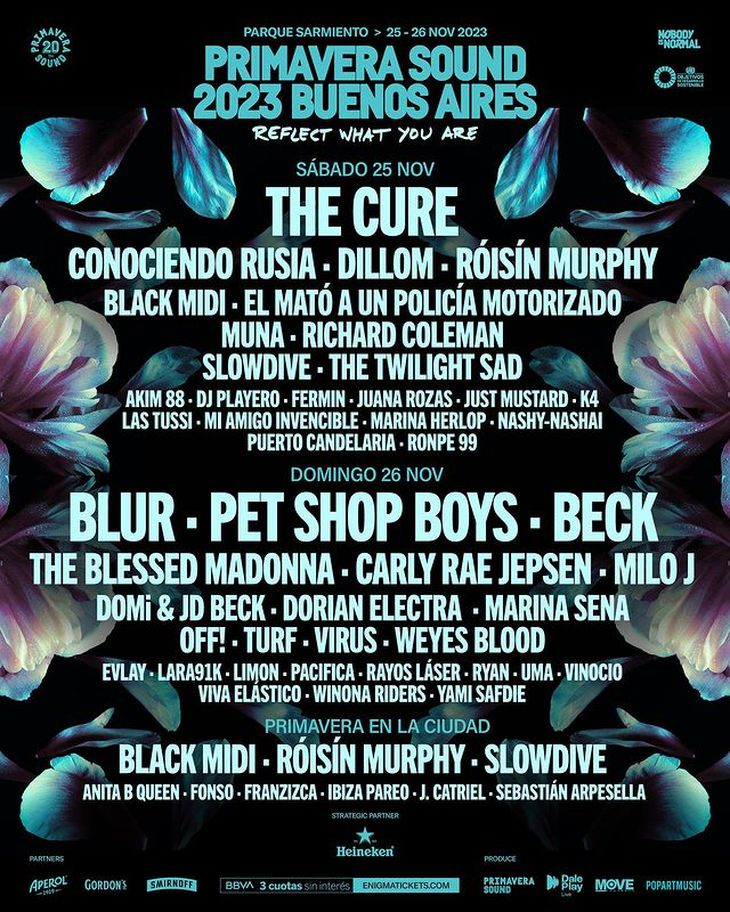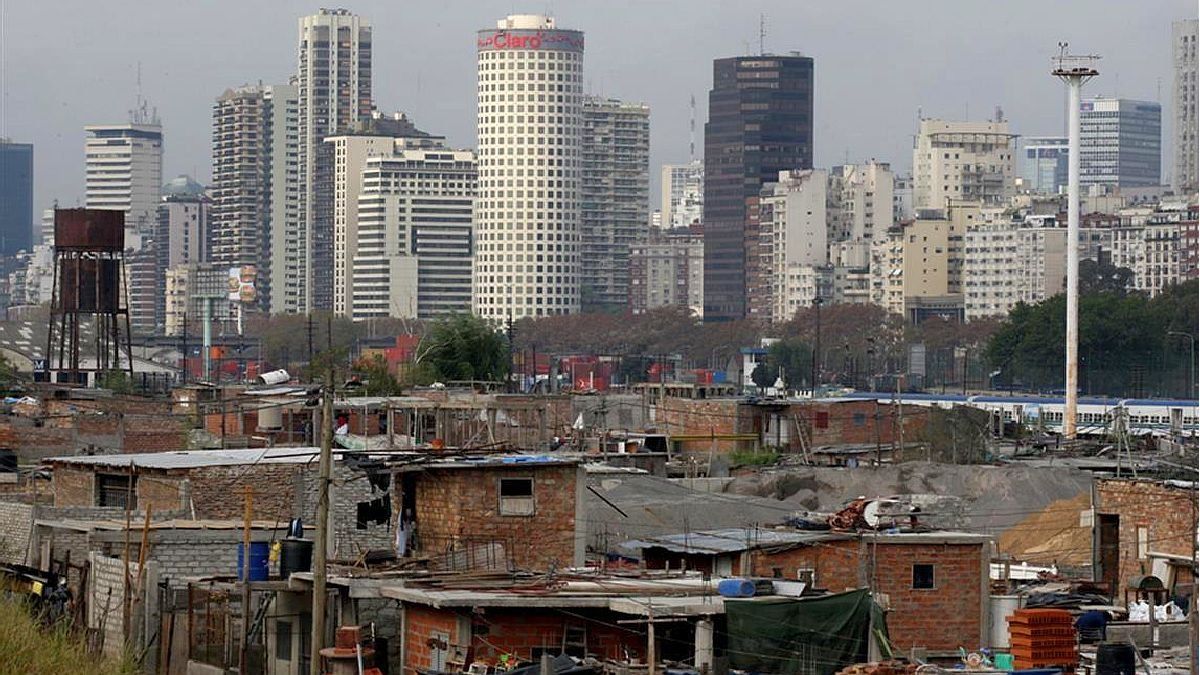Nations League on site
The emotion maker
The 7-0 win against Bosnia-Herzegovina shows that Julian Nagelsmann has managed to make the national team a place of longing again.
Sergej Barbarez spoke, but what he said half an hour before midnight in Freiburg’s Europapark Stadium was the text of Julian Nagelsmann. “I’m a fan of this team. I like what they do,” said Barbarez, the Bosnia-Herzegovina coach. “They are one of the best teams in the world.”
The praise went to the German national team, against whom Barbarez’s Bosnians had just lost 7-0. A compliment from a qualified source, because Barbarez knows the Bundesliga very well; he himself played for clubs such as Hamburger SV, Borussia Dortmund and Bayer Leverkusen for twelve years from the mid-90s.
When Barbarez left the podium, Julian Nagelsmann appeared. “I like what we do,” he said in the style of the previous speaker, only to then state that his team had moved “a little closer” to the top of the world.
It’s rare that the home and visiting coaches agree so much in their analysis, but this Saturday evening was so great for one coach that the other coach could only bow.
DFB team still in European Championship mode
The 7-0 win in the Nations League condensed everything that had recently distinguished the DFB team – it was a kind of review of the year, compressed into 90 minutes. The Germans played as if the European Championship had never been finalized, as if there was still a chance of reaching the semi-finals if they beat these Bosnians high enough.
Florian Wirtz, Jamal Musiala and Kai Havertz were spinning in front, only they were no longer served by Toni Kroos, but by Robert Andrich and Pascal Groß. After just two minutes it was 1-0 thanks to a header from Musiala. This set the tone for the evening. The Germans pushed and pushed, and with every goal they got a little more intoxicated. Even in the second half, when the game had long since been decided, the pressure on the Bosnian goalkeeper Nikola Vasilj remained high. However, he knows what it means to suffer. He is a full-time goalkeeper for FC St. Pauli.
For some observers, the situation slipped after the clear success. “Our greatest game since 7-1,” was the headline in Bild am Sonntag, alluding to the runaway win against Brazil in the 2014 World Cup semi-final. But that wasn’t Brazil, which was lost in the foggy weather in Freiburg, it was the Bosnians who played the kind of simple football you’d expect from the middle ranks of the second division.
Germany qualified for the quarterfinals
The audience was still in a celebratory mood. “Major Tom” was played in a kind of continuous loop by the stadium DJ, the fans sang and drank themselves into a state of bliss from which they were reluctant to be woken up. At midnight the beer stalls were still packed, as if you could bring back the European Championship summer with a plastic cup on your lips.
But the international year will soon be over. On Tuesday there is still a game against Hungary, Germany travels to Budapest, but has already qualified for the quarter-finals of the Nations League as group winners.
This means that a year that has been a year of resurrection for the DFB is coming to an end. In November 2023, German football still seemed to be trapped in a vegetative state, 2:3 in Berlin against Turkey and then a 0:2 against Ralf Rangnick’s Austrians in Vienna – that weighed more heavily than the disgrace in Cordoba. The tabloid, which had previously always called the national coach Julian, distanced itself and asked worriedly: “Is Nagelsmann ruining the European Championship for us?”
A low point becomes a turning point
Looking back, we can now see that this dull November was the most important month in the history of the DFB since the World Cup victory in 2014. It marked a low point that would become a turning point. Anyone who saw Nagelsmann at the course in Frankfurt just four months later, in March 2024, got to know a new trainer. All the fanciness, the cleverness, the super-coach behavior – Nagelsmann had given up on it.
He reorganized the team tactically and personally; The European Championships in the summer were a success, even if the Germans missed their target of reaching the semi-finals. Nagelsmann’s greatest achievement is not the ten wins and three draws (with only one defeat) in 2024. His actual achievement cannot be captured by any statistics: he succeeded in making the German national team a place of longing again.
Last week, Nagelsmann himself was surprised to see who had accepted his invitation to the course. There were even ailing players like Stuttgart’s Angelo Stiller, who tried despite muscular problems and later had to leave. “It would have been different a year ago,” said Nagelsmann at the start of the course in Frankfurt, “some people would have said: I’d rather sit out and stay with the club.”
Julian Nagelsmann was considered a tactics nerd
Another example: Saturday evening in Freiburg, shortly before the end of the game, Joshua Kimmich had to leave the field due to a suspected capsule injury. But the limping Kimmich calls out to Nagelsmann that he “absolutely” wants to play against Hungary.
The national team is now back to what it was in the early and middle years of the Löw era: a place that allows individuals to grow, that makes them larger than life in some moments (or at least makes them feel that way). Niklas Füllkrug recently said that every nomination for the national team was like winning a title for him.
When did it happen in the last six years, since the early exit from the 2018 World Cup, that people were so enthusiastic about the national team? This is already Nagelsmann’s legacy: he, who was long considered a tactics nerd, recharged the team emotionally. And far beyond the European Championships. It may be easy to commit a team to a tournament, but it is an art to ensure that this team spirit does not evaporate in the months afterwards.
Following the Hungary game on Tuesday, the national team will go on a four-month break. They won’t meet again until March, then for the quarter-finals of the Nations League. A young competition with a manageable reputation, but Nagelsmann wouldn’t be Nagelsmann if he didn’t hype up these games internally into a World Cup final – and everyone believed him.
Source: Stern
I am Pierce Boyd, a driven and ambitious professional working in the news industry. I have been writing for 24 Hours Worlds for over five years, specializing in sports section coverage. During my tenure at the publication, I have built an impressive portfolio of articles that has earned me a reputation as an experienced journalist and content creator.




